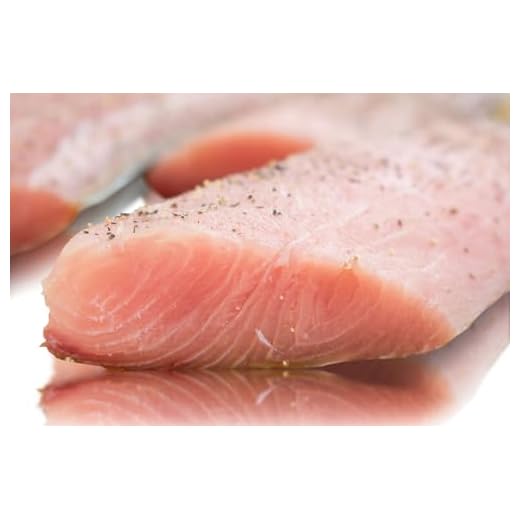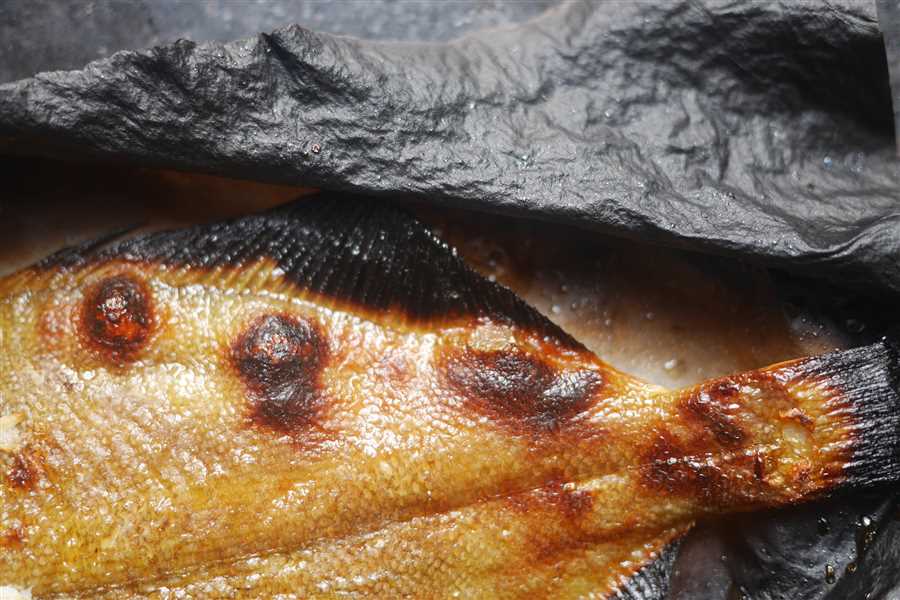







Many people wonder if it is possible to cook fish directly from the freezer without thawing it first.
The answer to this question is yes, you can cook fish from frozen. This method is particularly convenient for busy individuals who may not have time to defrost the fish in advance or for those who simply forgot to take it out of the freezer in time.
There are a few important factors to keep in mind when cooking fish from frozen. First, it is important to note that cooking fish from frozen may take longer than cooking thawed fish. This is because the frozen fish needs additional time to thaw and cook through. Therefore, it is crucial to adjust the cooking time accordingly.
Additionally, it is recommended to use a lower oven temperature when cooking fish from frozen to prevent the outside from burning before the inside is fully cooked. It is also important to properly season the fish and consider marinating it beforehand, as this can help enhance the flavors and ensure the fish remains moist and tender.
Is It Safe?
One common concern when cooking fish from frozen is whether it is safe to do so. The answer is yes, it is safe to cook fish from frozen, but there are a few important factors to consider.
1. Quality and Source of the Fish
The quality and source of the fish play a vital role in determining its safety when cooking from frozen. It is important to ensure that the fish is fresh and has been handled and stored properly before freezing. Fish that has been frozen immediately after being caught or purchased from a reputable source is generally safe to cook from frozen.
2. Cooking Methods and Temperatures
Using the correct cooking methods and temperatures is crucial when cooking fish from frozen. It is recommended to use methods that help to retain moisture, such as baking, steaming, or poaching. These methods ensure that the fish is cooked evenly and thoroughly, reducing the risk of bacterial contamination. Additionally, it is important to cook the fish at the proper internal temperature to kill any potential bacteria or parasites.
Consulting a reliable source or following a trusted recipe for cooking fish from frozen can help ensure that you are using the correct cooking methods and temperatures for the specific type of fish you are preparing.
3. Handling and Defrosting
Proper handling and defrosting techniques also contribute to the safety of cooking fish from frozen. It is important to handle the fish with clean hands and utensils to avoid cross-contamination. If you decide to defrost the fish before cooking, it should be done in the refrigerator and not at room temperature. Avoid defrosting fish on the countertop, as this increases the risk of bacterial growth.
Following these guidelines can help ensure the safety of cooking fish from frozen. However, it is always recommended to use caution and if you have any doubts about the quality or safety of the fish, it is best to thaw it completely before cooking.
Exploring the Safety of Cooking Frozen Fish
Many people wonder whether it is safe to cook fish directly from the freezer, without thawing it first. This article aims to explore the safety of cooking frozen fish and provide some helpful tips.
Is it Safe to Cook Frozen Fish?
The answer is yes, it is safe to cook fish that is frozen. When fish is frozen, bacteria and parasites cannot grow, making it safe to consume. However, it is important to ensure that the fish is cooked to the correct internal temperature to kill any potential bacteria that may have been present before freezing.
Cooking frozen fish is a convenient option, especially for those who do not have the time to thaw it before cooking. It can save time and allow for a quick and easy meal preparation.
Tips for Cooking Frozen Fish
Here are some tips to ensure the safety and optimal cooking of frozen fish:
- Follow Proper Cooking Times and Temperatures: Refer to the cooking instructions provided on the packaging or use a food thermometer to ensure that the fish reaches a safe internal temperature. The FDA recommends cooking fish to an internal temperature of 145°F (63°C).
- Use Quality Frozen Fish: Choose frozen fish that has been properly handled and stored to ensure its quality and safety. Look for fish that is frozen solid and has no visible signs of freezer burn.
- Avoid Cross-Contamination: Prevent cross-contamination by keeping the frozen fish separate from other foods and using separate utensils and cutting boards for raw and cooked fish.
- Consider Different Cooking Methods: Experiment with different cooking methods such as baking, grilling, or poaching to find the best way to cook frozen fish. Each method may require different cooking times and temperatures.
In conclusion, cooking frozen fish is safe as long as it is cooked to the appropriate internal temperature. With proper handling and cooking, frozen fish can be a delicious and convenient option for a quick and healthy meal.
Benefits of Cooking Frozen Fish
There are several benefits to cooking frozen fish instead of thawing it first. Here are some reasons why cooking fish from frozen can be advantageous:
| Benefit | Description |
|---|---|
| Convenience | Cooking frozen fish allows for a quick and easy meal. There is no need to plan ahead and defrost the fish, saving you time and effort. |
| Freshness | Freezing fish immediately after it is caught or processed helps to maintain its freshness. When cooked from frozen, the fish can retain its original taste and texture. |
| Versatility | Cooking frozen fish gives you the flexibility to prepare it in various ways. You can bake, grill, or pan-fry the fish directly from the freezer. |
| Nutritional Value | By cooking fish from frozen, you can preserve its nutritional value. Freezing helps to retain essential nutrients, such as omega-3 fatty acids, which are beneficial for overall health. |
| Reduced Waste | Cooking frozen fish prevents food waste. If you thaw the fish and don’t get a chance to cook it, it may spoil and need to be thrown away. Cooking from frozen allows you to only use the portions you need. |
Overall, cooking frozen fish provides convenience, freshness, versatility, nutritional value, and helps reduce waste. It is a practical option for those who want to enjoy a delicious and nutritious seafood meal without the hassle of thawing.
Risks to Consider
While cooking fish from frozen can be convenient, there are a few risks that should be considered.
1. Uneven Cooking

Cooking fish from frozen can result in uneven cooking. The exterior might be overcooked while the interior remains undercooked. This is because frozen fish takes longer to cook, and the outside can dry out before the inside is fully cooked. To avoid this, it’s best to thaw the fish before cooking.
2. Safety Concerns
Cooking fish from frozen can also pose safety concerns. Bacteria that may be present in the fish can multiply during the slow thawing process. This can increase the risk of foodborne illnesses. Thawing the fish properly in the refrigerator or using a gentle thawing technique, such as placing the fish in a sealed bag under cold running water, can help minimize these risks.
3. Quality and Texture
Lastly, cooking fish from frozen can have an impact on the quality and texture of the fish. The freezing process can affect the structure of the fish, resulting in a softer texture. Thawing the fish before cooking can help preserve the quality and texture, ensuring a better dining experience.
Overall, while it is possible to cook fish from frozen, it is generally recommended to thaw the fish first to ensure even cooking, minimize safety risks, and maintain the best quality and texture.
Proper Handling and Preparation
When cooking fish from frozen, it is important to follow proper handling and preparation techniques to ensure that the fish is safe to consume and maintains its quality. Here are some guidelines to follow:
1. Thawing

Before cooking frozen fish, it is best to thaw it first. Thawing allows for more even cooking and better flavor. You can thaw fish in the refrigerator, under cold running water, or in the microwave. Make sure to remove any packaging and place the fish on a plate or in a bowl to catch any drips.
2. Cleaning
Prior to cooking, it is essential to clean the fish properly. Rinse the fish under cold running water to remove any ice crystals or excess salt. Pat the fish dry with paper towels to remove any excess moisture.
3. Seasoning
Season the fish according to your preference. You can use a variety of herbs, spices, and marinades to enhance the flavor. Make sure to season both sides of the fish evenly.
4. Cooking
There are several methods to cook fish from frozen, including baking, grilling, and pan-frying. Follow the recipe instructions carefully and adjust the cooking time if needed. It is essential to cook the fish to an internal temperature of 145°F (63°C) to ensure that it is safe to eat.
Note: It is important to be cautious when handling raw fish to prevent any cross-contamination. Wash your hands thoroughly after handling raw fish and avoid using the same utensils or cutting boards for raw and cooked fish.
In conclusion, proper handling and preparation are necessary when cooking fish from frozen. By following these guidelines, you can ensure that the fish is safe to eat and will be deliciously cooked.
Question-answer
Can fish be cooked directly from frozen?
Yes, fish can be cooked directly from frozen. It is safe to cook fish from a frozen state and it can even yield better results in terms of texture and moisture.
What is the best way to cook frozen fish?
The best way to cook frozen fish is to bake it in the oven. Preheat the oven to the recommended temperature for the specific type of fish, place the frozen fish in a baking dish, and cook it until it reaches the desired internal temperature.
Is it necessary to thaw frozen fish before cooking?
No, it is not necessary to thaw frozen fish before cooking. Thawing fish can lead to loss of moisture and can affect the texture. Cooking fish directly from frozen can help preserve its freshness and taste.
How do I know when frozen fish is cooked?
You can determine if frozen fish is cooked by checking its internal temperature. The safe internal temperature for most types of fish is 145°F (63°C). You can use a food thermometer to check the temperature at the thickest part of the fish.
What are the advantages of cooking fish from frozen?
The advantages of cooking fish from frozen include convenience, preservation of freshness, and enhanced texture. Cooking fish from frozen saves time as there is no need to thaw it beforehand. It also helps to retain the natural moisture and flavor of the fish.
Can I cook fish straight from the freezer?
Yes, you can cook fish straight from the freezer. Fish can be cooked from frozen, but it will take longer to cook compared to defrosted fish. Make sure to adjust the cooking time accordingly.
What is the best way to cook frozen fish?
There are several methods to cook frozen fish. One of the best ways is to bake it in the oven. Preheat the oven to the recommended temperature and place the frozen fish on a baking sheet. Brush it with some oil or melted butter, season with salt and pepper, and bake for the recommended time, or until the fish is cooked through and flakes easily with a fork.






